-
Product Name
NCK1 antibody
- Documents
-
Description
NCK1 Rabbit Polyclonal antibody. Positive WB detected in mouse brain tissue, mouse liver tissue. Positive IP detected in mouse brain tissue. Positive IF detected in Hela cells. Positive IHC detected in human breast cancer tissue. Positive FC detected in HeLa cells. Observed molecular weight by Western-blot: 43kd
-
Tested applications
ELISA, WB, IHC, IF, FC, IP
-
Species reactivity
Human,Mouse,Rat; other species not tested.
-
Alternative names
Cytoplasmic protein NCK1 antibody; NCK antibody; Nck 1 antibody; NCK adaptor protein 1 antibody; NCK1 antibody; NCKalpha antibody
-
Isotype
Rabbit IgG
-
Preparation
This antibody was obtained by immunization of NCK1 recombinant protein (Accession Number: NM_001291999). Purification method: Antigen affinity purified.
-
Clonality
Polyclonal
-
Formulation
PBS with 0.02% sodium azide and 50% glycerol pH 7.3.
-
Storage instructions
Store at -20℃. DO NOT ALIQUOT
-
Applications
Recommended Dilution:
WB: 1:500-1:5000
IP: 1:200-1:2000
IHC: 1:20-1:200
IF: 1:10-1:100
-
Validations
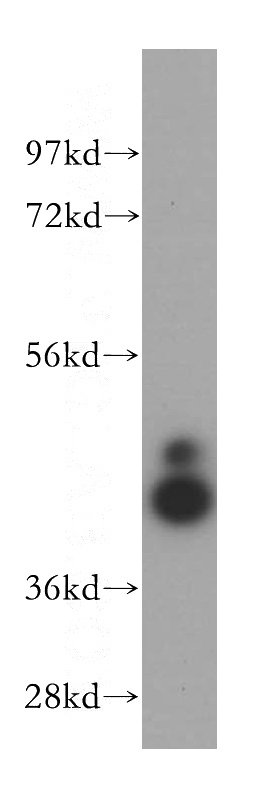
mouse brain tissue were subjected to SDS PAGE followed by western blot with Catalog No:113036(NCK1 antibody) at dilution of 1:400
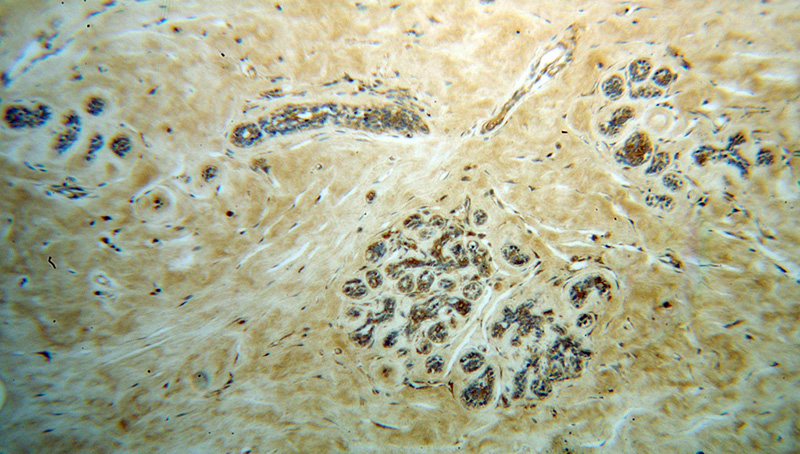
Immunohistochemical of paraffin-embedded human breast cancer using Catalog No:113036(NCK1 antibody) at dilution of 1:100 (under 10x lens)
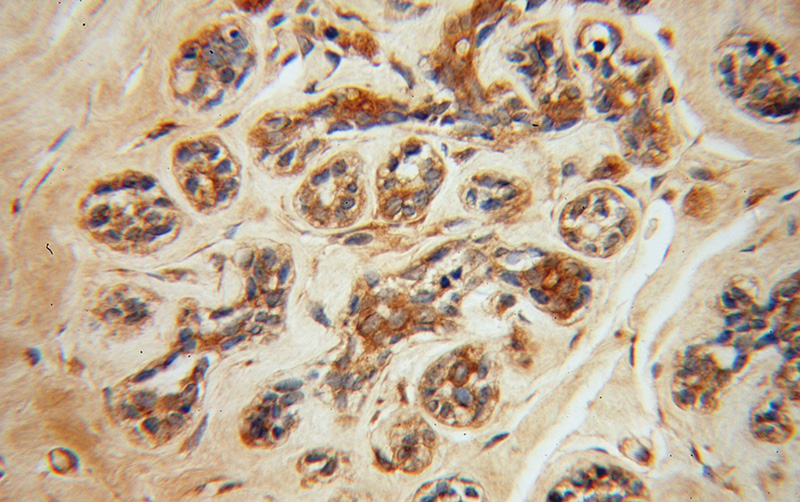
Immunohistochemical of paraffin-embedded human breast cancer using Catalog No:113036(NCK1 antibody) at dilution of 1:100 (under 40x lens)
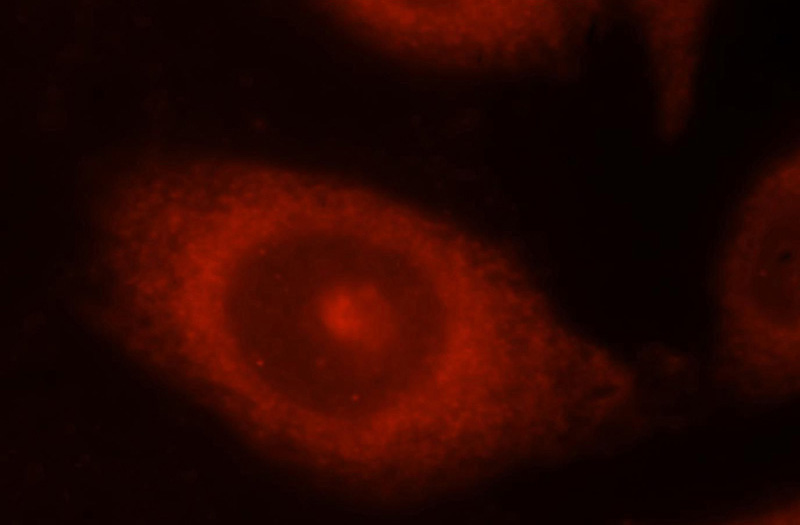
Immunofluorescent analysis of Hela cells, using NCK1 antibody Catalog No:113036 at 1:25 dilution and Rhodamine-labeled goat anti-rabbit IgG (red).
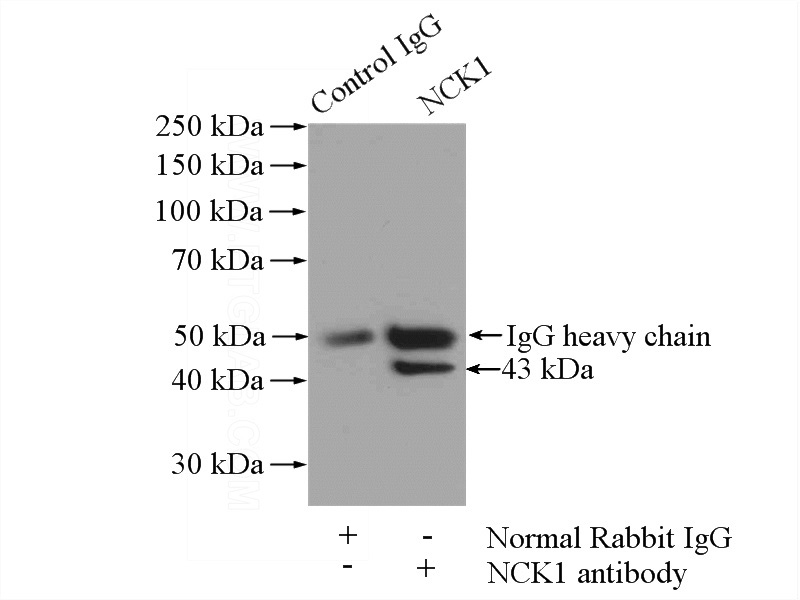
IP Result of anti-NCK1 (IP:Catalog No:113036, 4ug; Detection:Catalog No:113036 1:500) with mouse brain tissue lysate 2640ug.
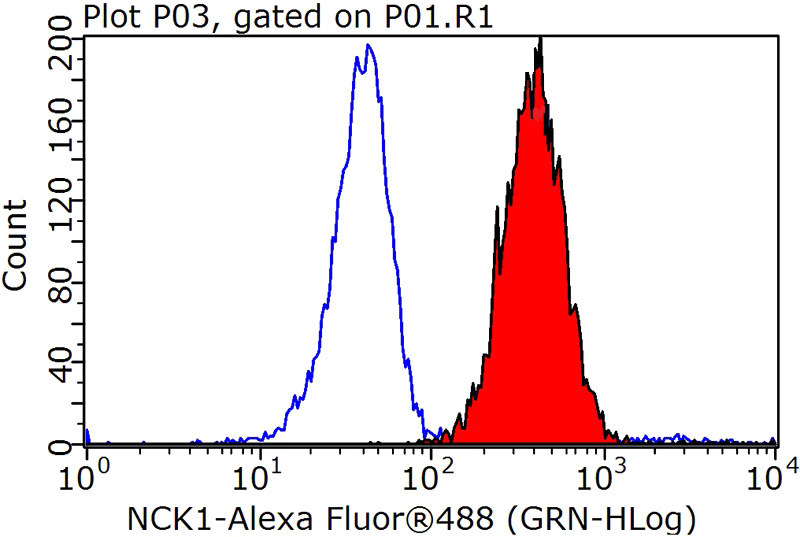
1X10^6 HeLa cells were stained with 0.2ug NCK1 antibody (Catalog No:113036, red) and control antibody (blue). Fixed with 90% MeOH blocked with 3% BSA (30 min). Alexa Fluor 488-congugated AffiniPure Goat Anti-Rabbit IgG(H+L) with dilution 1:1000.
-
Background
NCK family adaptor proteins function to couple tyrosine phosphorylation signals to regulate actin cytoskeletal reorganization that leads to cell motility. Cytoplasmic protein NCK1 (or NCK alpha) is an adapter protein which associates with tyrosine-phosphorylated growth factor receptors, such as KDR and PDGFRB, or their cellular substrates. NCK1 binds a number of intracellular proteins and influences various signaling pathways including GTPase-activating protein of Ras (RasGAP), which is responsible for the down-regulation of Ras. NCK1 is recently reported to regulate the UPR, which secondary to obesity impairs glucose homeostasis and insulin actions.
-
References
- Lettau M, Kliche S, Kabelitz D, Janssen O. The adapter proteins ADAP and Nck cooperate in T cell adhesion. Molecular immunology. 60(1):72-9. 2014.
Related Products / Services
Please note: All products are "FOR RESEARCH USE ONLY AND ARE NOT INTENDED FOR DIAGNOSTIC OR THERAPEUTIC USE"
